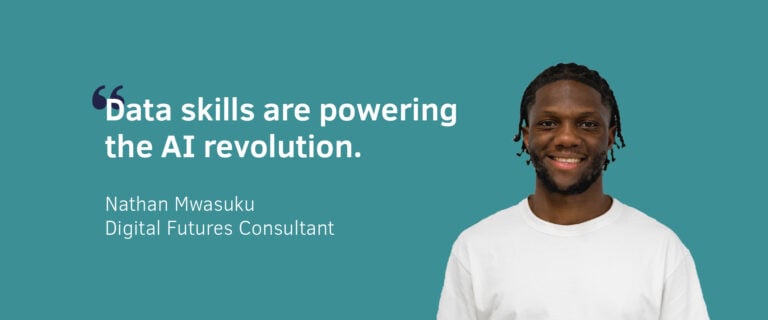2021 was a clear demonstration of how the workforce and jobs of the future are moving toward a skills-based economy. An economy driven by the accelerated adoption of new technologies and interconnected digital business models, where the right skills are valued more greatly over academic qualifications alone.
The results of this transition are significant in many ways and presents an opportunity to improve social mobility and diversity, as well as address the asymmetry that exists between current education systems and the skills requirements of industry.
Most importantly, it offers employers an opportunity to reshape their workforce planning and hiring practices around this shifting paradigm. The pace at which organisations can pivot will undoubtedly help define their future performance, as well as potentially improve issues such as talent attraction and employee retention.
To put this issue into perspective, the World Economic Forum estimates that more than one billion jobs, almost one-third of all jobs worldwide, are likely to be transformed by technology in the next decade. This was evidenced in the annual reports of almost every FTSE 100 and Fortune 500 company in 2020, where digital transformation was highlighted as a key priority by boards, with the greatest risk consistently cited as access to skills.
The advancement of technology presents many great benefits to society, however, also brings into focus the relevance of the existing workforce. The need for mass upskilling has never been greater, as most organisations converge around similar technology strategies and digital business models.
Governments are keen to avoid undue pressure being placed on domestic healthcare and welfare systems, resulting from an accelerated departure of individuals from industry due to a lack of relevant skills and knowledge. The UK Government in particular, has established several initiatives to mitigate this including and overhaul of the apprenticeship scheme, launch of skills bootcamps and various reforms to the national curriculum.
However, despite this there remain over one million unfilled technology job vacancies in the UK and only 16% of graduates successfully secured jobs and entered the workforce at the completion of their studies in 2021. Whilst Covid undoubtedly had a bearing on this, the fact remains that our reliance on traditional education systems to produce the required skills for industry is simply not working.
As organisations assess the changing need, they will make hiring decisions based on the value of that person’s competencies, skills and relevance for the future of the company. This, in theory, should create greater opportunity for those who are unable, or choose not to, attend university – enabling them to acquire skills via alternative learning methods and allow them to enter the workforce at an earlier age.
For generations, we have spent the first third of our lives acquiring knowledge that has included in many cases attending university where the attainment of a degree has been seen as a symbol of achievement and status in society – a milestone confirming your readiness for the next stage of your journey in life.
Regrettably, university degrees have also often been a minimum requirement for employment and paved the way for a career in a particular industry or function, implying the nature of our work, along with the skills and knowledge required to execute it, remains unchanged for a lifetime – which of course is no longer true.
Whilst universities will continue to play an important part of the global educational infrastructure, relying on a four-year degree as a proxy for employability, not only excludes a large percentage of the population, but it also means relying on talent with potentially redundant skills rather than lifelong learners with ever relevant skills.
As we transition towards a skills-based economy, the future of work will not only be about hard skills; it will be about holistic behaviours and capabilities also, including creative problem-solving, a collaborative mindset and an ability to deal with ambiguity and complexity. As such, finding not only the right individual, but those with the right skills and mindset, will be a key challenge for enterprise.
So how can companies meet these challenges and create a sustainable workforce with the required skills to meet the ongoing needs of the organisation?
- Digital strategy and business models should be designed at a level of granularity where changes to job function can be understood, including the key skills and training required to perform the role
- Employers should adopt a common organisational and skills taxonomy, where knowledge, skills and training are directly linked to role functions
- Employers need to prioritise and truly understand the required skills needed for specific role functions and learn how to validate an individual’s knowledge of them on a continuous basis
- Large organisations should look to create internal training academies, where learning pathways are specifically aligned to the technology of the organisation and cater for all levels of learning
- Recruitment and assessment processes should be adapted to focus on the identification of required skills and holistic behaviours and remove minimum academic requirements where possible
- Finally, organisations should commit to the development of early years talent, with a clear pathway for career progression linked to the acquisition of new skills where reward is aligned to the outcomes an individual creates
By reimagining talent strategies where skills are the currency of the future and at the heart of decision-making for employment, organisations will benefit from access to a greater pool of more diverse talent, as well as benefit from a more engaged, loyal and productive workforce.
At Digital Futures, we’re focused on accelerating the transition to a skills-based economy, helping companies build diverse and high-performing organisations representative of society.







